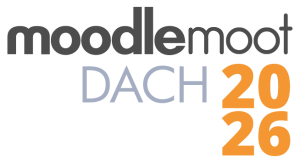Boost Union Overview
Alexander Bias (lern.link)
Unfortunately, I missed to provide a DevPad to allow the audience to take notes.
Thus, I provide notes from a similar talk which I gave for Moodle Users Association recently.
Cheers,
Alex
-------------------------
Plugin database:
Github:
Issues:
Who are we:
-> A working group from germany, consisting of three individual institutions:
-> "Moodle at higher education institutions" association
-> 51 higher education institutions
-> With more than 850.000 students
-> Moodle Partner lern.link
-> Full service Moodle partner located in germany
-> Hosting, Support, Development of Moodle
-> Moodle plugins manufacturer bdecent
-> bdecent is providing many amazing plugins for your Moodle which you can directly use
What we do:
-> We build Boost Union, the successor of the quite successful Boost Campus theme for Moodle 4
-> Boost Union is officially published on moodle.org/plugins -> Official releases for 4.0 and 4.1
->
The number of official installations has been growing constantly since
the release of the theme and is currently at slightly more than 1.000
installations -> makes us slightly proud
Why do we do that:
-> Moodle 4 doesn't provide much more control over the theme settings than Moodle 3 did
->
There are great Moodle 4 themes out there, but all of them suffer more
or less from the fact that your Moodle UI diverges from the Moodle core
UI as soon as you enable the theme. This means that you can have a great
theme, but you also have to explain your users all the fundamental
differences between your Moodle and the official Moodle docs and other
official support material.
->
In contrast to this, Boost Union's major design princinple is:
Everything is configurable and everything is disabled by default.
->
On a plain Moodle installation, you won't notice any difference between
Boost Core and Boost Union. But in the next step, you have plenty of
theme settings at hand. With these theme settings you can enable only
the additional features you need from Boost Union and can leave the
others disabled.
->
Furthermore, it good to know that most of Boost Union's settings just
add features, elements or styling to the Moodle UI and do not change
existing Moodle core features in a fudamental way.
Some existing highlights:
-> Login page backgrounds and form position
-> Extensive branding options - without the need to fiddle with SCSS
-> Back to top button (Was removed by Moodle core unfortunately in Moodle 4)
-> Scroll-Spy (is currently discussed for Moodle Core in MDL-73217)
-> Course hint for switched role
-> Course hint for hidden course
-> Footnote
-> Static pages for imprint, contact and more
-> Advertisement tiles
-> Flavours for university faculties or similar
-> Many additional block regions
What is coming soon in Boost Union:
-> Smart menus (local_boostnavigation is basically gone, but there will be more smart menu options soon in Boost Union)-> Extensive course headers
How do we work:
-> We are currently mainly organized on Github where we work with Github issues and pull requests.
->
There is a weekly standup for the stakeholder group
-> We try to work on Boost Union improvements constantly.
-> Patches for bugfixes and improvements constantly reviewed and integrated based on our available time.
-> Every few weeks, we publish a new release with the changes which have been integrated since the last release
-> Each release comes with a CHANGELOG file which helps you to identify what has been changed in this release
What about sustainability:
-> The theme rises and falls with the people who are actively working on it.
->
All of our three organizations have embraced Boost Union as primary
theme. It's our own interest to keep it working and growing as long as
the UI of Moodle Core does not change dramatically again.
->
We cannot promise anything, but as long as at least one of our
organisations still exists and uses Moodle, Boost Union should be
continued.
How you can get involved:
-> Create a Github account and watch the repo to be notified about issues and pull requests
-> Create issues and participate in discussions on Github
->
Contribute your own Boost improvements as pull request (but ideally
let's have a discussion about the change first in an issue)!
-> Volunteer as code peer reviewer and tester!
-> Volunteer as documentation fairy for the moodle.org publication!
-> The more people are involved, the more sustainable the project will be
-> Contributors get credits on https://github.com/moodle-an-hochschulen/moodle-theme_boost_union/blob/master/README.md#contributors
